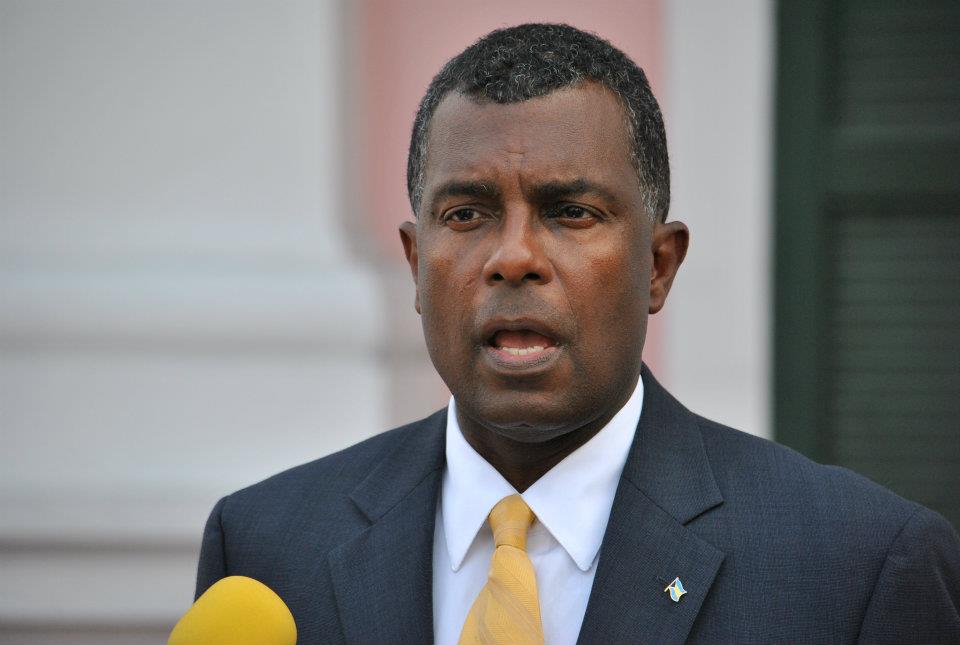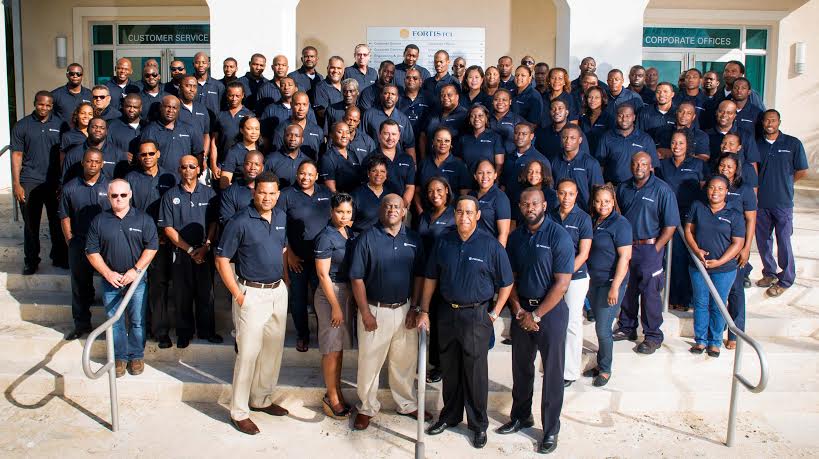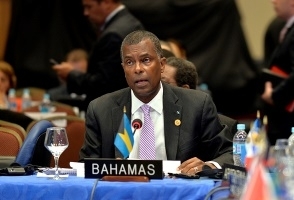House Intervention by Fred Mitchell MP
Electricity (amendment) Act
21 January 2014
Check against delivery
Mr. Speaker,
I support this legislation.
I want to say that one of the statements I remember about energy is that at a Chamber of Commerce dinner where my friend Henry Dean was named Developing Entrepreneur of the Year; former Treasury Secretary of the United States Nicholas Brady who is a resident of Lyford Cay spoke. He said that you cannot develop your economy without a reliable source of electricity. I think Bahamians know instinctively that that is correct.
You just have to ask those who cuss every time the power goes off in this country. The problem is I do not remember a time when the power was not going off in this country: it didn’t matter which government, from the UBP time to now. The history is power failure after power failure.
So this government is now in, trying to do the heavy lifting to make a reliable power supply a reality for this country. We have that brand new hotel coming up which places enormous power demands on us and we have to find a way to meet the power needs. We cannot have another summer of our people sweating in discontent.
Finally, it appears that the US is engaged in this, in seeking a solution.
In connection with their input, the U S Vice President Joe Biden is convening an energy summit in Washington DC on 26th January. Our Prime Minister in his capacity as Chair of Caricom and in his own right will be making a statement at the conference.
We welcome the engagement of the United States in this matter. In particular, we hope that this will lead to changes in policies by that country to enable cheaper access to energy supplies.
We know for example or have been told that when investors come to The Bahamas and in particular to Grand Bahama, they love the place. Everything is fine, until they hear the cost of power.
When you compare the cost of power at 40 cents per kilowatt hour produced in The Bahamas, Canada produces at 8 cents per KwH, China at 11 cents per KwH, the USA at 12 cents per KwH and Trinidad at 7 cents per KwH.
The US, UK and other partners have criticized the Caricom region for embracing Petro Caribe, a marketing programme by Venezuela to sell petroleum products to Caricom with extended credit. Recently Venezuela sold their credit note to a private sector interest. Countries are watching this carefully but it has been beneficial to all countries in the region that were facing balance of payment problems and had public sector distribution of oil.
We welcome the ability now to join the grid by supplying your own power.
Power will be one of the major determinants about the success or failure of Caricom economies. It is most important that we resolve this problem.
Renewable energy sources are the clear answer. At the moment some relief with the process of fossil fuels falling but we do not know how long this will last. So in the long term we must resolve the issue of the cost of power.
· At the Summit, the Organization of the Petroleum Exporting Countries (OPEC) will announce a team dedicated to energy projects in the Caribbean. The team will focus on identifying projects, identifying funding and marrying projects with investors. The goal is to unlock private sector capital to enhance energy security and taking on new debt is not the best way to deal with the issue.
· At the Summit, the World Bank is to announce a donor coordination mechanism; i.e. working with different countries to coordinate how energy requirements are approached in the region and to establish a new funding facility that can be drawn on and governments can contribute to.
· Create a sense of high level engagement from the US with the region on energy security, particularly regarding the notion that CARICOM should not be subject to the vagaries of oil markets, governments and oil suppliers, and towards an outcome of cheaper, safer, more reliable energy resources for the region based on market mechanisms;
· Listen to Caribbean leaders to understand better the problems that confront energy pricing and supply in the region;
· Consider necessary market and regulatory reforms in the region needed to spur investment in energy sectors;
· The US currently limits export of energy resources. CARICOM should make a loud call to the US that you should be looking to us as a market and if there will be a opening for US exports of energy resources then we should be the top of the list as a potential market;
· The Caribbean to propose ideas to make its own energy supply less hydro carbon dependent;
· US proposals cannot compete with Petro Caribe because that is not a market based system, which they assume is not sustainable, but intend to discuss what the US is offering as an alternative, namely:
· Organization of the Petroleum Exporting Countries (OPEC) guarantees for projects;
· Assisting consortium of islands to pool resources to show a demand pulse to oil companies;
· Carving out /prioritizing friends as markets using the leverage the US Government has in divvying out licenses.
For CARICOM, energy security is about creating a more competitive, dynamic and prosperous economy. Lower energy costs will unleash more disposable income for our citizens and make our economies more globally competitive.
· CARICOM would like to be seen as equal partners for investment – the methodology for cooperation could be: “What is in it for you? What is in it for me? Can we do it together?”
· The greater Caribbean should be seen as a viable market for US export and investment and as the third border of the United States, not only friends but family, we expect to be prioritized for any new access provided to US energy resources. We see today’s Summit as a measure of our mutual resolve to strengthen our common future. We look to the US Government for assistance with facilitating bridges between US resources and expertise and Caribbean potential.
· CARICOM is looking to develop its own resiliency, self-sufficiency and export potential given the energy resources, mostly untapped, in our own territories – therefore a priority for assistance should be to help us to help ourselves.
Access to multilateral finance/ aid and private capital is important to developing our own potential to be energy secure. This will require countries like the United States, who have significant influence over multilateral institutions and international financial institutions, to commit to reconceptualising indicators of development needs which are currently based on crude metrics and which lock out many Caribbean countries from access to concessional financing and aid. Either IFI’s will have to reform or risk becoming irrelevant and uncompetitive in relation to emerging international financing options.


 Caribbean News7 days ago
Caribbean News7 days ago
 Caribbean News7 days ago
Caribbean News7 days ago
 Caribbean News1 week ago
Caribbean News1 week ago
 Caribbean News7 days ago
Caribbean News7 days ago
 Bahamas News7 days ago
Bahamas News7 days ago
 News7 days ago
News7 days ago
 Bahamas News1 week ago
Bahamas News1 week ago
 News7 days ago
News7 days ago



















